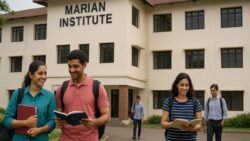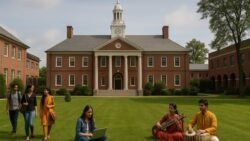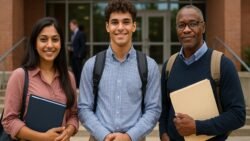Learning Environment – St. John’s Public School (stjohnspublicschool.org) believes that school should be a launchpad for life, not just exams. That’s why our guidance pathway—informally called the Marian Institute approach—focuses on strong academics, character, and real-world readiness. Students engage with experiential projects aligned to the National Education Policy 2020, which emphasizes holistic, multidisciplinary learning; read more about its vision on the official portal at NEP 2020. Our lesson planning draws from competency-based frameworks shared by CBSE and curated resources from NCERT, while digital learning is strengthened with open libraries such as the National Digital Library of India and teacher-student resources on DIKSHA. To build confidence and communication, co-curriculars are mapped to global life skills goals advocated by UNESCO. The result is a nurturing environment where children are encouraged to think critically, collaborate ethically, and grow into responsible citizens ready for college, careers, and community leadership.
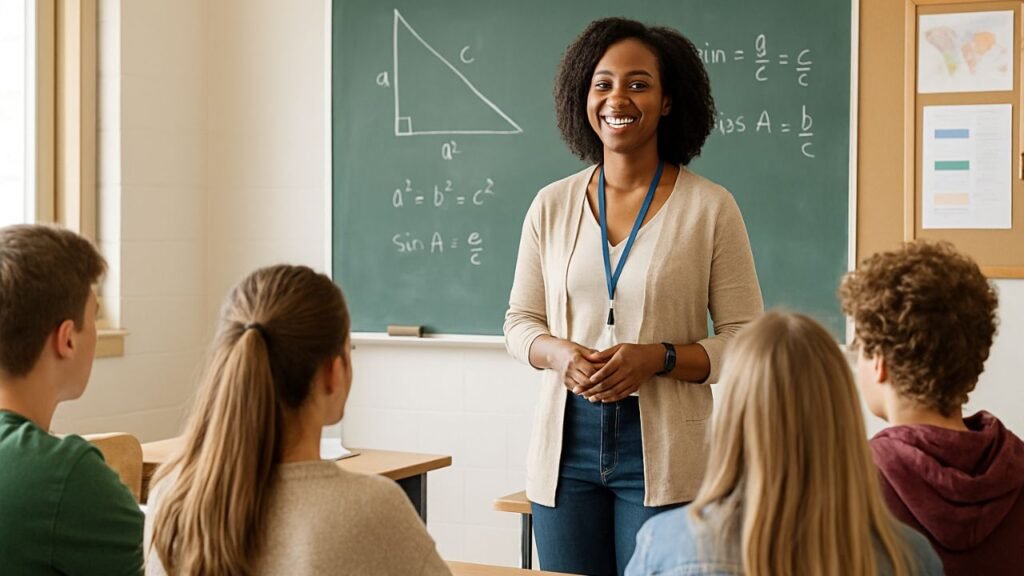
Academic Excellence With Real-World Skills
Our academic roadmap blends rigorous subject mastery with applied learning so that students internalize concepts and transfer them to real-life contexts. We adopt outcome-focused planning inspired by CBSE’s competency-based assessments; explore the board’s academic resources at CBSE Academic. Teachers integrate concept notes, exemplars, and practice items with curated materials from ePathshala and national MOOCs on SWAYAM, ensuring students can revise and extend learning beyond the classroom. Project work encourages inquiry, data literacy, and presentation skills, while formative checks keep feedback timely and personal. By aligning classroom units to NEP’s flexible pathways (NEP 2020), we help learners select subjects confidently and build portfolios that reflect both depth and breadth. The emphasis on writing, speaking, and problem-solving ensures that a stellar report card is paired with the ability to analyze issues, design solutions, and communicate clearly—skills valued by universities and employers alike.
Technology-Enabled, Student-Centric Learning
St. John’s classrooms use technology to personalize pace, track progress, and make learning visible. Teachers pair hands-on activities with digital practice sets, e-books, and multimedia libraries so each child can learn, rehearse, and master ideas in multiple ways. Our approach borrows best practices from India’s digital public infrastructure for education, including DIKSHA for content discovery and SWAYAM for advanced exploration. We also reference the OECD’s future-ready competency framework (OECD Education 2030) to design tasks that cultivate creativity, critical thinking, and collaboration. Beyond devices, the heart of our edtech model is mentorship: teachers use analytics to spot gaps early, tailor revision, and celebrate growth. Students practice responsible digital citizenship and research skills, preparing them to navigate information ethically and safely. With guided use of national repositories like the National Digital Library, learners build the habits of lifelong, self-directed learning.
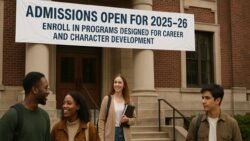 Admissions Open for 2025–26 – Enroll in Programs Designed for Career and Character Development
Admissions Open for 2025–26 – Enroll in Programs Designed for Career and Character Development
Character, Well-Being, and Life Skills
Education at St. John’s balances achievement with well-being. We intentionally cultivate empathy, resilience, and leadership through house activities, clubs, and service projects aligned to life-skills education supported by UNESCO. Age-appropriate modules on decision-making, communication, and emotional self-regulation are integrated across subjects and homeroom advisories, reflecting global research on social-emotional learning and future readiness (OECD Education 2030). Sports and cultural programs nurture teamwork, confidence, and respect, while reflective journals help students connect values to action. We emphasize academic honesty, digital etiquette, and community responsibility so that graduates not only excel in examinations but also demonstrate integrity and compassion. This whole-child lens ensures our learners can handle pressure, collaborate across differences, and contribute positively—whether in a university seminar, a hackathon, a debate stage, or a neighborhood initiative.
Counselling, Pathways, and College Readiness
Our counselling cell helps families map choices from secondary grades to higher education and careers, aligning subject selections to interests, aptitude, and evolving opportunities. We draw on CBSE guidance documents (CBSE Academic) and NEP-aligned pathways (NEP 2020) to demystify combinations, bridge to vocational courses, and encourage interdisciplinary strengths. Students learn to build portfolios, write statements of purpose, and present projects that demonstrate competencies—analysis, creativity, collaboration—that global universities value (OECD Education 2030). We connect classroom work to real contexts through exhibitions, internships or shadowing opportunities when feasible, and competitions that test problem-solving in authentic scenarios. By the time learners graduate from St. John’s, they possess more than marks: they carry a toolkit of academic depth, life skills, ethical grounding, and the confidence to adapt—exactly the preparation a life-ready learning environment promises.
